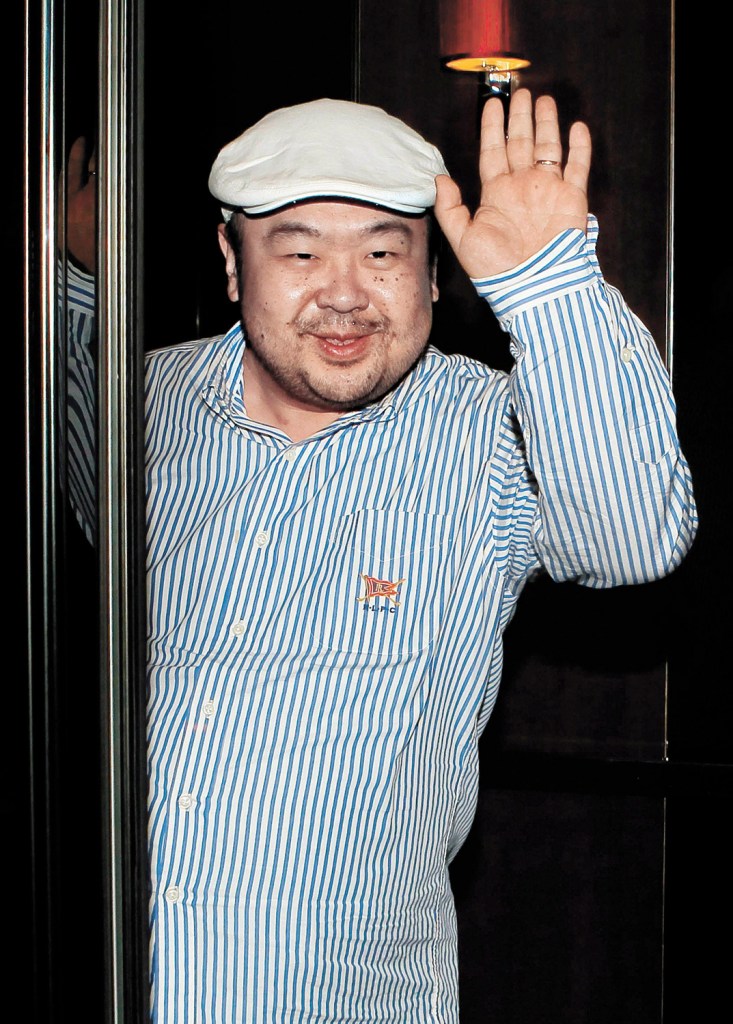KUALA LUMPUR, Malaysia – The half brother of North Korean leader Kim Jong Un was assassinated at an airport in Kuala Lumpur, telling medical workers before he died that he had been attacked with a chemical spray, a Malaysian official said Tuesday.
Kim Jong Nam, 46, was targeted Monday in the shopping concourse at the airport and had not gone through immigration yet for his flight to Macau, said the senior government official, who spoke on condition of anonymity because the case involves sensitive diplomacy.
He was taken to the airport clinic and then died on the way to the hospital, the official said.
Kim Jong Nam was estranged from his younger brother, the North Korean leader. He had been tipped by outsiders to succeed their dictator father, but reportedly fell out of favor when he was caught trying to enter Japan on a false passport in 2001, saying he wanted to visit Tokyo Disneyland. He was believed to have been living recently in Macau, Singapore and Malaysia.
Multiple South Korean media reports, citing unidentified sources, said Kim Jong Nam was killed at the airport by two women. TV Chosun, citing “multiple government sources,” said the women were believed to be North Korean agents. It said they fled in a taxi and were being sought by Malaysian police.
A Malaysian police statement confirmed the death of a 46-year-old North Korean man whom it identified from his travel document as Kim Chol, born in Pyongyang on June 10, 1970. The statement said the man had sought initial assistance at a customer service counter at the Kuala Lumpur airport and died en route to a hospital Monday.
“Investigation is in progress and a post mortem examination request has been made to ascertain the cause of death,” the statement said.
Ken Gause, at the CNA think tank in Washington who has studied North Korea’s leadership for 30 years, said Kim Chol was a name that Kim Jong Nam has traveled under. He is believed to have been born May 10, 1971, although birthdays are always unclear for senior North Koreans, Gause said.
In Washington, the State Department said it was aware of reports of Kim Jong Nam’s death but declined to comment, referring questions to Malaysian authorities.
The reported killing came as North Korea celebrated its latest missile launch, which foreign experts were analyzing for evidence of advancement in the country’s missile capabilities. For the next several days, North Korea will be marking the birthday of its late leader Kim Jong Il, the brothers’ father though they have different mothers. The major holiday this Thursday is called the “Day of the Shining Star” and will be feted with figure skating and synchronized swimming exhibitions, fireworks and mass rallies.
Since taking power in late 2011, Kim Jong Un has executed or purged a slew of high-level government officials in what the South Korean government has described as a “reign of terror.” The most spectacular was the 2013 execution by anti-aircraft fire of his uncle, Jang Song Thaek, once considered the country’s second-most-powerful man, for what the North alleged was treason.
Mark Tokola, vice president of the Korea Economic Institute in Washington and a former deputy chief of mission at the U.S. Embassy in Seoul, said it would be surprising if Kim Jong Nam was not killed on the orders of his brother, given that North Korean agents have reportedly tried to assassinate Kim Jong Nam in the past.
“It seems probable that the motivation for the murder was a continuing sense of paranoia on the part of Kim Jong Un,” Tokola wrote in a commentary Tuesday. Although there was scant evidence that Kim Jong Nam was plotting against the North Korean leader, he provided an alternative for North Koreans who would want to depose his brother.
Gause said Kim Jong Nam had been forthright that he did not have political ambitions, although he was publicly critical of the North Korean regime and his brother’s legitimacy in the past.
Kim Jong Nam had been less outspoken since around 2011, when North Korean assassins reportedly tried to kill him in Macau, Gause said. He had reportedly traveled to North Korea since then, so it was assumed he was no longer under threat. Kim Jong Nam may have become more vulnerable as his defender in the North Korean hierarchy, Kim Kyong Hui – Kim Jong Un’s aunt and the husband of assassinated uncle Jang Song Thaek – appears to have fallen from favor or died. She has not been seen in public for more than three years, Gause said.
Gause said that while the most likely explanation for the killing was that Kim Jong Un was removing a potential challenger to North Korean leadership within his own family, he could also be sending a warning to North Korean officials to demonstrate the reach of the regime. It follows the defection last year of a senior diplomat from the North Korean Embassy in London who has spoken of his despair at Kim’s purges of officials.
Evans Revere, a former U.S. diplomat and specialist on East Asia, said the killing did not mean the North Korean regime was unstable. He said it showed Kim Jong Un’s brutal control and ability to eliminate opponents or perceived opponents.
Victor Cha, a former White House director for Asian affairs, disagreed.
“He sacks the minister of state security last month and now kills the elder brother. Doesn’t look so stable to me,” Cha said.
Send questions/comments to the editors.




Comments are no longer available on this story